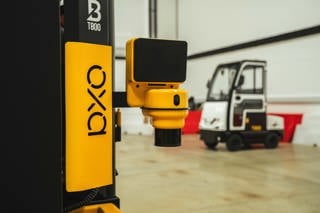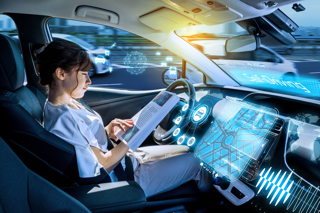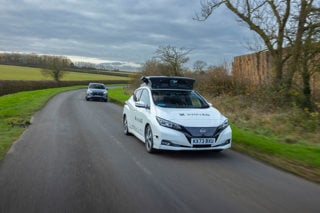The Government is being urged to introduce a ‘software MOT’ for driverless cars after it paved the way for greater investment in the technology.
The Institution of Engineering and Technology (IET) said the Modern Transport Bill, announced during the Queen’s Speech, is an important step to improving road safety and reducing congestion.
However, it added that the Government also needs to introduce legislation to improve cyber security in autonomous vehicles.
IET cyber security expert Hugh Boyes said: “We must ensure that cyber security is carefully considered. It is not just about the threat of a car being hacked, it also relates to the overall security and safety of the vehicle’s operation.
“For that reason it will be crucial that the Government introduces proper regulations for autonomous vehicles, which should include the need for a software MOT to be performed on a regular basis.
“This should help to assure the ongoing trustworthiness of the vehicle software and systems.”
The operation of an autonomous vehicle will be heavily dependent on software embedded in the vehicle.
This will provide complex functions that are currently performed by the driver, including interpreting potential hazards, changes in vehicle direction and speed and responding safely to vehicle faults or malfunctions.
“It will be vital to ensure that this software runs smoothly so, in the same way as we take our cars for annual MOTs at the local garage today, in the future we will need to include a check on the software to ensure defects and vulnerabilities are addressed,” explained Boyes.
“How these checks happen, and who is responsible for them, is something we should be thinking about now.”
The warning from the IET comes in the wake of a study revealing major concerns over the security of connected cars.
In a poll of 1,000 drivers across the UK and Germany, online security company Veracode found that 50% of respondents were concerned about the security of driver-aid applications such as adaptive cruise control, self-parking and collision avoidance systems.
“What we’re seeing happen in the auto industry is a microcosm of what’s happening in financial services, healthcare and virtually every other sector – applications are not created with security in mind, creating a major area of risk,” said Chris Wysopal, chief technology officer at Veracode.
Findings from its recent report indicated that there could be a lag of up to three years before car security systems are protected from hackers.
Jonathan Hewett, vice president of Octo Telematics, is similarly concerned. “The need to protect data in the shift to connected, driverless and autonomous cars is implicit and those behind the connected car movement must operate to the highest levels of system security standards,” he said.
Against this backdrop, Hewett says an announcement about the winners of a multi-million pound research grant from the Department for Business, Innovation and Skills and Innovate UK to fund developments in user-centric autonomous vehicle technology, including research to address security risks associated with connected cars, is a significant boost for the industry.
Paul Farrington, senior solution architect at Veracode, said: “With over 200 million lines of code in today’s connected car, not to mention smartphone apps linked to the car, we must ensure they are developed with security at the heart of the strategy, rather than as an afterthought.”
The Government says the Modern Transport Bill will help cut red tape and put the right framework in place to allow innovation, which it claims will put the UK at the forefront of driverless vehicle ownership and use.
Transport secretary Patrick McLoughlin said the Bill will “pave the way for the technologies and transport of tomorrow”.
“We are already developing a charging infrastructure for electric and hybrid vehicles,” he said. “Driverless cars may seem like science fiction to some. But the economic potential of these new technologies is vast and we are determined that Britain will benefit by helping to lead their development.
“Driverless cars will come under new legislation so they can be insured under ordinary policies. These new laws will help autonomous and driverless cars become a real option for private buyers and fleets.”






















Login to comment
Comments
No comments have been made yet.